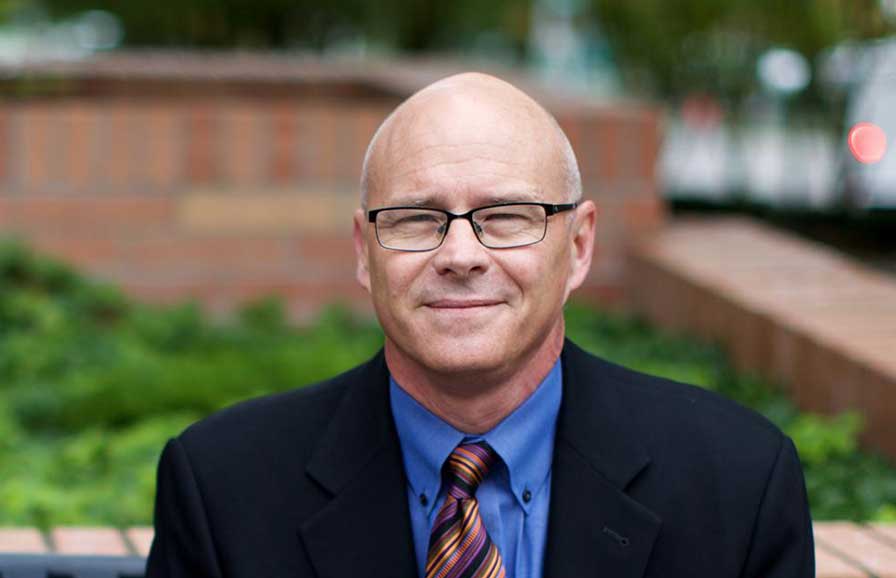Why do you practice oncology?
Bruce Montgomery, MD made the switch from laboratory research to patient care and clinical research because he wanted to work with the prostate cancer team at UW Medicine and Fred Hutch. “It was the opportunity to work with my colleagues in medical oncology, urology and radiation oncology, as well as the rest of the program in Prostate Cancer Research, that first attracted me to doing research in prostate cancer and ultimately to doing clinical trials and treating patients,” says Dr. Montgomery. He says he likes being part of the team: “It’s a great group and a remarkable team experience. We all collaborate. The group is very cohesive; they’ve found a way to really work together.” Dr. Paul Lange, the well-known prostate surgeon and urologist who sees patients at Fred Hutch and is chairman of the Department of Urology at the University of Washington, talks about why he wanted Dr. Montgomery to join the team: “Bruce brings a wealth of experience not only in medical oncology but also in basic cancer research to our table. Until we were able to lure him to UW and Fred Hutch, he was very involved in basic research and in the treatment of GU—and other cancers—at the VA, where he was one of the major players in medical oncology.”
Dr. Montgomery divides his time between seeing patients at the Fred Hutch Prostate Center and conducting research. He is a medical oncologist, an associate professor at UW Medicine and an affiliate member of the Clinical Research Division of Fred Hutch. “Bruce is a very compassionate, conscientious, and skillful physician, a real intellectual when it comes to cancer knowledge and an outstanding researcher who is now devoting a majority of his research time to clinical trials.” Dr. Montgomery and his colleagues are researching new ways of making prostate cancer cells more sensitive to chemotherapy and hormonal therapy. Dr. Montgomery generally sees men with prostate, bladder or testicular cancer, which may be treated with chemotherapy or other options such as hormone therapy. Until recently, men with early stage prostate cancer were treated only with surgery or radiation, but Dr. Montgomery says that this is starting to change. “Oncologists are beginning to use chemotherapy and vaccines to treat men with earlier-state prostate cancer if their disease has certain high-risk features, such as a very high PSA or high Gleason scores. For these men, the chance of a recurrence is high, perhaps 50 percent or higher.” These new treatments for high-risk prostate cancer are being evaluated in a number of clinical trials, and Dr. Montgomery often finds himself discussing the pros and cons of enrolling in clinical research with his patients. He acknowledges that enrolling in a clinical trial can be a scary proposition, but says that he will often ask a patient to join a study both because he is hoping to help that patient and because he is looking to the future, hoping to improve the treatments available for prostate cancer. “We are going in with the hope that the trial will have benefit for you and also for the next man down the road who has to deal with the disease,” he says. “I tell my patients, we wouldn’t have the standard of care we have now without other men who joined in this collaboration between patients and researchers.”
